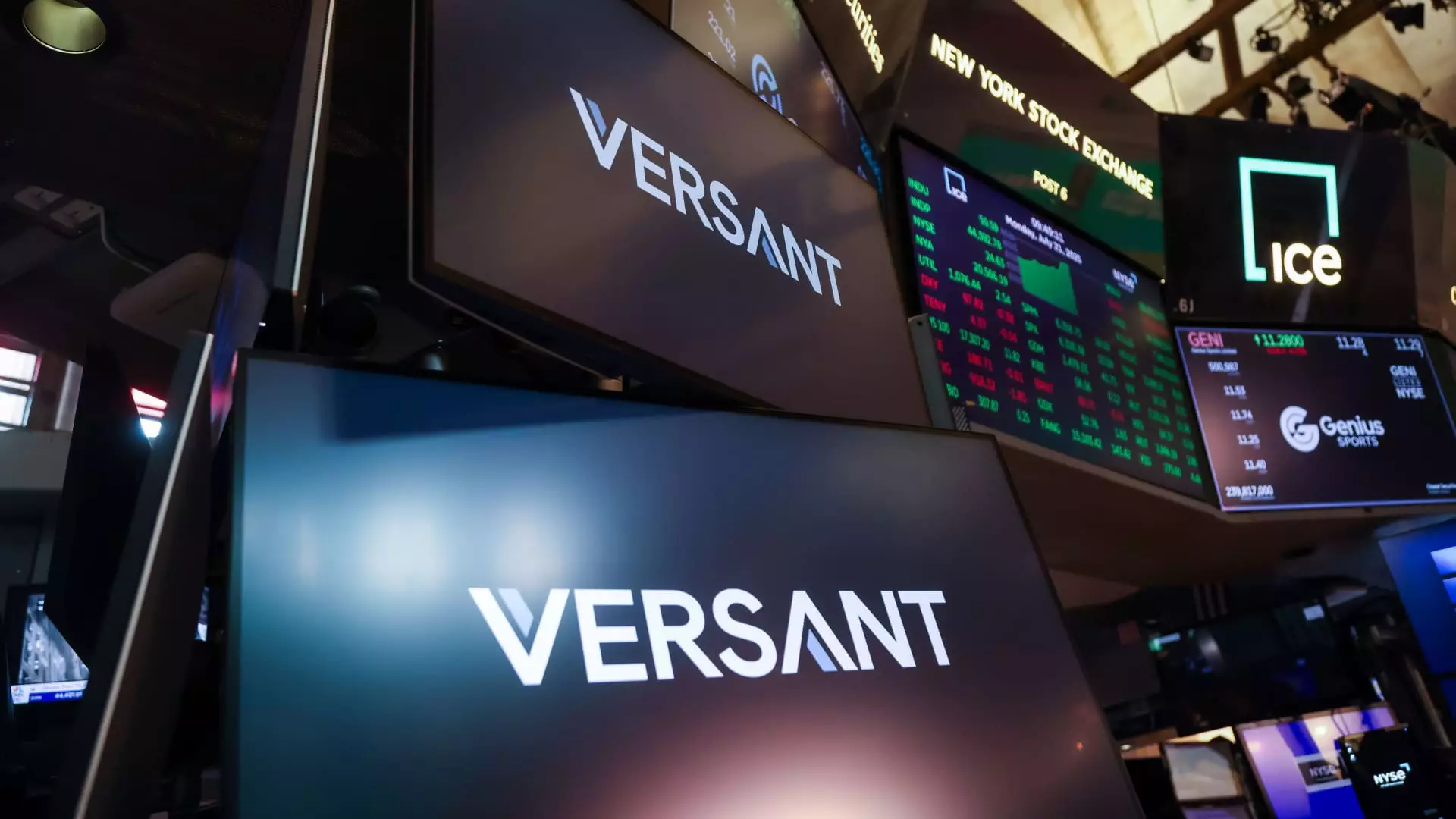The Strategic Rationale and Its False Promises
In recent corporate maneuvers, the announcement of Comcast’s plan to spin off its cable networks into a new entity named Versant exemplifies a pattern often seen but rarely scrutinized: the illusion of innovation as a guise for strategic rebranding. While leadership touts this move as a means of unlocking value and fostering independence, the reality is that such spinoffs often serve more as a financial chicanery than genuine progress. By shedding assets under the pretense of unlocking shareholder value, corporations mask the ongoing reliance on traditional media and the stifling infrastructure that resists meaningful adaptation to modern, digital-first consumption patterns. Instead of pioneering a new era of media entertainment, these corporate stratagems often perpetuate outdated models, merely rearranged under a new corporate mantle.
Leadership and the Mirage of Expertise
The composition of Versant’s board underscores an industry largely dominated by individuals whose credentials, while impressive on paper, reveal a troubling pattern of conformity rather than innovation. Mark Lazarus, the CEO, emerges from the familiar realm of NBCUniversal, an emblem of traditional big-media bureaucracy. His leadership suggests continuity rather than disruption. Meanwhile, David Novak, the prospective chairman, brings executive experience from fast-food conglomerates rather than digital media or emerging tech, further cementing the conservative nature of this repositioning. The apparent focus on sector-specific expertise disguises a broader reluctance to embrace the technological upheaval that could truly transform media. Instead, these leaders appear more invested in safeguarding endemic monopolistic structures than ushering in an era of democratized, innovative content delivery.
The Distraction of Diversity of Backgrounds
Versant’s diverse board includes professionals from finance, law, arts, and even biotech—an array that superficially suggests a convergence of different perspectives. Yet, this diversity is often a veneer, masking a systemic tendency towards maintaining the status quo. Rebecca Campbell’s Disney background and Michael Conway’s corporate leadership in consumer brands signal stability, not disruption. While cross-industry experience can bring fresh insights, in practice it frequently results in cautious incrementalism rather than revolutionary change. The inclusion of biotech and finance figures, while ostensibly broadening horizons, does little to challenge the entrenched power structures of traditional media conglomerates or compel a shift towards innovative, consumer-centric content strategies.
The Reality of Digital Transition and Its Neglect
One significant weakness of this spinoff narrative is the superficial acknowledgment of digital transformation. While Versant’s portfolio includes companies like Fandango and Rotten Tomatoes—well-established digital platforms—their integration remains mired in legacy models. The move appears more as a repositioning within an increasingly digital ecosystem rather than a substantive shift towards harnessing emerging technologies like artificial intelligence, immersive media, or direct-to-consumer streaming. The leadership’s focus on traditional cable brands signals a reluctance to commit to the disruptive opportunities presented by new media landscapes. This reluctance underscores a broader industry trend: corporate spinouts are often more about avoiding obsolescence than embracing innovation.
Conclusion**
Ultimately, the Versant spinoff reveals the enduring dominance of corporate optics over genuine progress. It is a calculated move designed to project an image of agility and forward-thinking while preserving the core structures that inhibit real innovation. Leadership’s backgrounds and the strategic focus reflect a conservative outlook masked as an entrepreneurial breakthrough. As stakeholders and industry observers, we should be skeptical of the veneer of progress offered by corporate spinouts. Authentic innovation requires risking more than just restructuring; it demands a willingness to reevaluate and overhaul the very foundations of media and technology—something these corporate maneuvers conspicuously lack. Real progress in media is about democratizing content and empowering consumers, not merely rebranding old assets under new banners.

